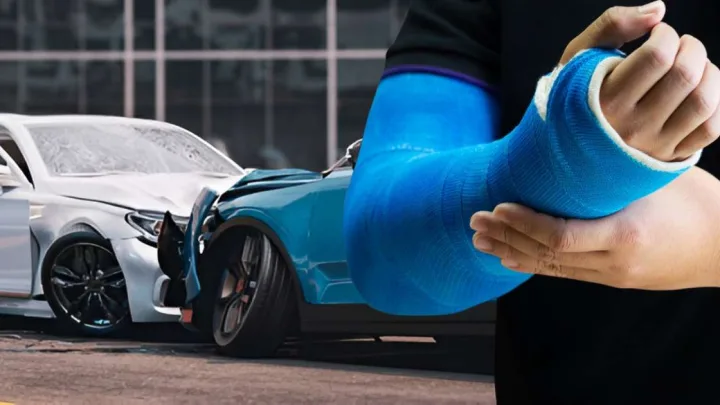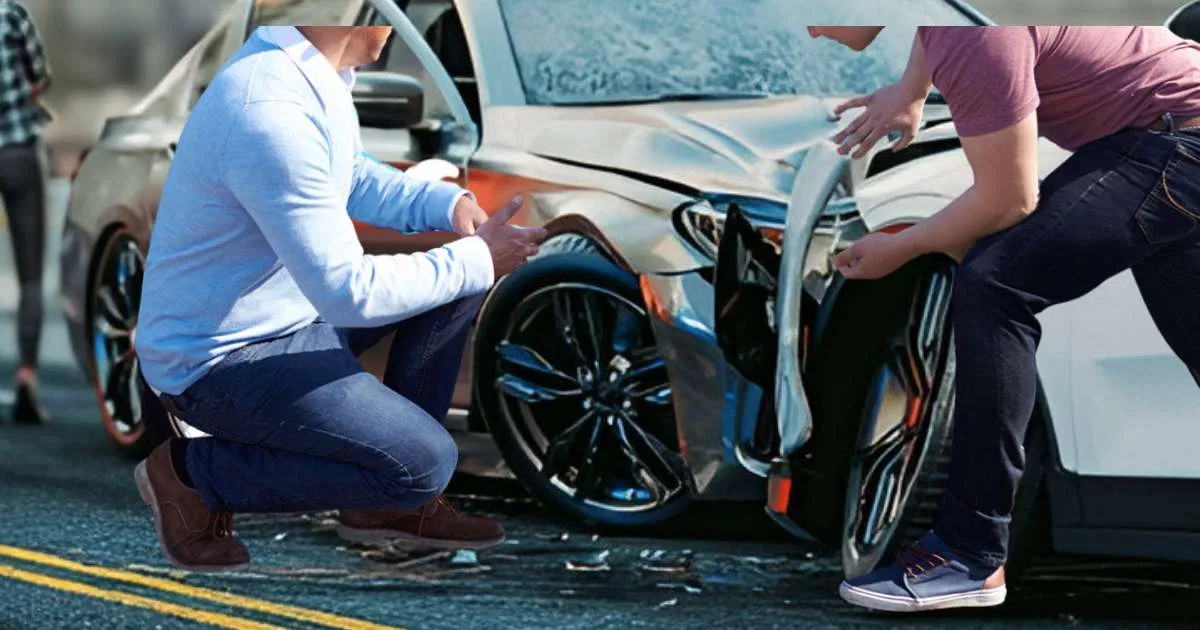
Does medicaid cover car accidents expenses and rehabilitation costs after a car accident. This includes hospital stays, doctor visits, and physical therapy.
Navigating the aftermath of a car accident can be overwhelming, especially when facing mounting medical bills and recovery time. Fortunately, Medicaid offers a financial lifeline to eligible individuals, ensuring they receive the necessary medical care without the added stress of unmanageable expenses.
Understanding how Medicaid can assist with car accident-related expenses is crucial for anyone involved in such incidents. By providing coverage for a range of post-accident care, Medicaid helps ease the financial burden, allowing for a focus on recovery. This guide aims to shed light on the benefits and process of utilizing Medicaid for car accident expenses, offering peace of mind during a challenging time.
Medicaid And Car Accident Expenses
Car accidents often bring unexpected medical expenses. Injuries from such events may require extensive care. Medicaid can be a critical resource for individuals facing these sudden costs. This section explores how Medicaid assists with expenses resulting from car accidents.
The Role Of Medicaid
Medicaid serves as a safety net for many Americans, including those injured in car accidents. It's a state and federally funded program designed to aid with medical costs for people with limited income and resources. Medicaid may cover expenses like hospital stays, doctor visits, and long-term care that result from a car accident.
Car Accidents And Medical Costs
Medical costs after a car accident can be high. They often include emergency services, surgeries, medications, and rehabilitation. Medicaid helps eligible individuals manage these costs. This ensures they receive the necessary treatment without the burden of overwhelming bills.
| Expense Type | Coverage by Medicaid |
|---|---|
| Emergency Services | Yes |
| Surgical Procedures | Yes |
| Prescription Medications | Yes |
| Physical Rehabilitation | Yes |
- Emergency care is often needed after an accident.
- Medicaid can cover these emergency services.
- Surgeries and follow-up care may be necessary.
- Medicaid assists with these surgical costs.
- Medications help in recovery from injuries.
- <strong>Prescription costs can be covered by Medicaid.
- Rehabilitation helps regain mobility</strong> and function.
- Medicaid can help with physical therapy expenses.
Medicaid's role is vital for accident victims. It ensures they focus on recovery, not financial stress. Eligibility requirements vary by state. Victims should check local Medicaid programs for specific coverage details.
 Eligibility For Medicaid After An Accident
Eligibility For Medicaid After An Accident
Eligibility For Medicaid After An Accident
After a car accident, medical bills can pile up quickly. Many people wonder if Medicaid can help. Here, we'll talk about Eligibility for Medicaid After an Accident. We'll see who qualifies and how a car accident might change things.
Qualifying For Medicaid
Medicaid helps people with low income pay for health care. To qualify, you must meet certain income and resource limits. These limits vary by state. Often, you must fall below a specific income level. You also need to be a U.S. citizen or have a certain immigration status.
- Income level: Most states require your income to be below a certain threshold.
- Resource limits: Some states check if you have savings or assets above a certain amount.
- Residency: You must live in the state where you apply for Medicaid.
- Other factors: Age, pregnancy, and disability status can also affect eligibility.
Changes In Circumstances Post-accident
A car accident can change your life in many ways. It might also change your eligibility for Medicaid.
- Income changes: If you can't work because of your accident, your income might drop. This could help you qualify for Medicaid.
- Medical needs increase: More medical care means higher costs. Medicaid might cover these new expenses.
- Disability status: A serious accident can lead to a disability. This might help you qualify under different Medicaid rules.
Remember, you must report any changes to your income or health status to Medicaid. This ensures you get the right help.
Income drop might qualify you
| Before Accident | After Accident |
|---|---|
| Income above Medicaid limits</td> | |
| No disability | Disability might help you qualify |
| Limited medical needs | Increased medical needs might be covered |
Covered Expenses By Medicaid
After a car accident, medical costs can pile up quickly. Medicaid can be a lifeline during this time. It covers a range of expenses. Let's explore what Medicaid takes care of following a car accident.
Hospital Stays
Medicaid covers hospital admissions resulting from a car accident. This includes:
- Emergency care
- Intensive care services
- Surgeries and medical procedures
- Room and board
Rehabilitation Services
Recovery often requires specialized care. Medicaid supports this journey. Coverage includes:
- Physical therapy sessions
- Occupational therapy
- Speech and language pathology
Prescription Medications
Medications are essential for pain and healing. Medicaid helps with:
| Medication Type | Coverage |
|---|---|
| Pain relievers | Yes |
| Antibiotics | Yes |
| Anti-inflammatories | Yes |
 Navigating The Claims Process
Navigating The Claims Process
Navigating The Claims Process
Navigating the Claims Process can feel like a maze after a car accident. Medicaid offers a lifeline for medical costs. Understanding the steps is key to getting help fast.
Filing A Claim
Start by reporting the accident to your Medicaid office. Quick action is crucial. Tell them all about the accident. They will guide you on what to do next.
Required Documentation
- Accident report: Get this from the police.
- Medical records: These show your injuries.
- Proof of Medicaid coverage: Have your card ready.
- Bills and receipts: Keep all these safe.
Dealing With Denials
If Medicaid denies your claim, don't worry. First, check the denial letter. It explains why. You can ask for a review.
Get your documents ready. Sometimes, more information helps. You have rights. A fair review is one of them.
Coordination Of Benefits
Coordination of Benefits plays a key role after a car accident. It helps sort out who pays what. This process involves Medicaid and your auto insurance. Understanding it can save you from unexpected bills.
Primary Vs. Secondary Payer
Who pays first? Let's break it down.
- Primary Payer: The insurance that pays first. Usually, it's your auto insurance.
- Secondary Payer: Steps in after the primary payer. Medicaid often acts as this.
Medicaid as a secondary payer covers gaps left by your auto insurance. This ensures all your care needs meet without extra cost to you.
Working With Auto Insurance
Coordination between Medicaid and auto insurance needs clarity. Here's how they work together:
- Report the accident to both insurances.
- Auto insurance assesses and pays first.
- Medicaid covers remaining approved expenses.
Always keep both parties informed. This reduces delays in coverage. Plus, it ensures your medical bills get covered efficiently.
Medicaid And Long-term Care
After a car accident, injuries may require long-term care. Medicaid can be a lifeline. This program helps cover costs for ongoing medical needs. Let's explore how Medicaid supports those needing extended care services.
Access To Long-term Services
Long-term care services can be costly. Medicaid steps in to ease this financial burden. Eligible individuals receive essential support. This support includes nursing facilities and personal care services.
- Nursing home stays are often covered.
- Personal care assistance helps with daily activities.
- Therapy services aid in recovery.
Home Health Care Coverage
Many prefer recovering at home. Medicaid recognizes this need. It provides coverage for home health care. Qualified members get essential services in the comfort of their homes.
| Service | Coverage |
|---|---|
| Nursing care | Full coverage based on need |
| Medical equipment | Items like wheelchairs are included |
| Home health aides | Assistance with personal care |
Legal Considerations
After a car accident, understanding Medicaid's role is vital. Legal factors play a crucial part in managing expenses. Medicaid may cover medical bills, but legal aspects like liens and reimbursements need attention. Know your rights and obligations to navigate this complex process.
Liens And Reimbursements
Medicaid has a right to recover costs from a settlement. A lien ensures they get repaid. When you receive a settlement, Medicaid may place a lien on it. This means part of the funds must go towards reimbursing Medicaid for medical expenses.
States have different rules on liens. Some allow full reimbursement, while others limit the amount. A table can clarify this:
| State | Full Reimbursement Allowed? | Reimbursement Cap |
|---|---|---|
| New York | Yes | None |
| California | No | $15,000 |
Seeking Legal Advice
After an accident, consult a lawyer. A legal expert can guide you through Medicaid's rules. They can help protect your settlement from excessive liens. A lawyer will negotiate with Medicaid to reduce the reimbursement amount. This ensures you keep more of your settlement.
Find a lawyer experienced with Medicaid claims. They should know your state's laws. This expertise is vital for a favorable outcome. A list of considerations when choosing a lawyer includes:
- Experience with car accident cases
- Knowledge of Medicaid's reimbursement process
- Success in reducing liens for clients
Seeking legal advice early can save you money. Don't wait until after you receive a settlement. Early consultation provides a better chance to secure your financial future.
 Maximizing Medicaid Benefits
Maximizing Medicaid Benefits
Maximizing Medicaid Benefits
Medicaid provides crucial support after a car accident. It helps cover medical costs when they pile up. Knowing how to maximize Medicaid benefits is vital. It ensures you get the financial help you need. Let's explore how to use Medicaid to its fullest potential.
Utilizing All Available Programs
Many programs exist under Medicaid. They offer additional support after accidents. It's important to tap into all of them. Here's how:
- Research Medicaid's programs. Find those that apply to accident-related care.
- Apply promptly. Some programs have time-sensitive enrollment.
- Understand the coverage. Know what each program pays for.
- Ask questions. Medicaid staff can help navigate the options.
Staying Informed About Policy Changes
Medicaid policies change often. Staying informed is key. Here are simple steps to stay updated:
- Visit Medicaid's website. It has the latest policy updates.
- Sign up for alerts. Get updates sent directly to you.
- Consult with a Medicaid expert. They can explain changes.
- Review your benefits yearly. Ensure your coverage remains intact.
Personal Stories Of Support
Accidents can turn lives upside down. Medicaid brings hope and relief. Many have found a lifeline in Medicaid after car accidents. Their stories inspire and teach. Real people have overcome real challenges. Let's share their journeys.
Success Stories
John’s swift recovery shines bright. Medicaid covered his surgery costs. He returned to work in months. Mary's physical therapy, funded by Medicaid, restored her mobility. Their successes highlight Medicaid's impact.
Challenges Overcome With Medicaid
Medicaid's support goes beyond bills. Emily faced immense trauma. Counseling services via Medicaid helped her heal. Tom's car was totaled. Medicaid's transportation services got him to appointments. These stories prove Medicaid's breadth.
- Emergency care
- Surgeries
- Rehabilitation
- Counseling
- Transportation aid
Future Of Medicaid In Accident Coverage
The landscape of healthcare coverage continually evolves. Medicaid plays a crucial role in providing financial aid for car accident expenses. Let's explore how potential reforms and advocacy could shape the future of Medicaid's role in accident coverage.
Potential Policy Reforms
Medicaid could undergo significant changes to better serve accident victims. These changes may include:
- Expanded eligibility to cover more individuals.
- Increased benefits that cater to long-term care.
- Streamlined processes for quicker support.
Policy reforms aim to ensure timely and effective aid for those in need after accidents.
Advocacy And Changes
Advocates work tirelessly for Medicaid enhancements. They focus on:
- Pushing for better coverage of accident-related treatments.
- Ensuring fair access to care for all accident victims.
- Supporting legislation that provides comprehensive benefits.
These efforts help shape a more robust system for accident coverage through Medicaid.
Frequently Asked Questions
Does Medicaid Cover Car Accident Injuries?
Medicaid can cover medical costs for injuries sustained in a car accident. Eligibility and extent of coverage vary by state, but generally, necessary treatments and hospital visits are included.
How Soon After A Car Accident Can I Use Medicaid?
You can use Medicaid immediately after a car accident if you're eligible. Ensure that you have reported the accident and have received approval for the treatment from Medicaid if required.
What Expenses Does Medicaid Cover In A Car Accident?
Medicaid typically covers emergency services, doctor visits, hospital stays, and necessary surgeries related to a car accident. Prescription medications and rehabilitation may also be included.
Can Medicaid Recover Costs From A Car Accident Settlement?
Yes, Medicaid can seek reimbursement from a settlement or judgment awarded for a car accident. They may file a lien against any compensation received to recover expenses paid for your medical care.
Conclusion
Navigating car accident expenses can be daunting, but Medicaid stands as a beacon of hope. This vital program offers financial relief, ensuring medical costs don't add to your stress. Remember, timely application is key to accessing these benefits. Secure your financial recovery with Medicaid's support—your health and wallet will thank you.
Disclosure
Some links may be affiliate links. That means we may earn a small commission at no extra cost to you.